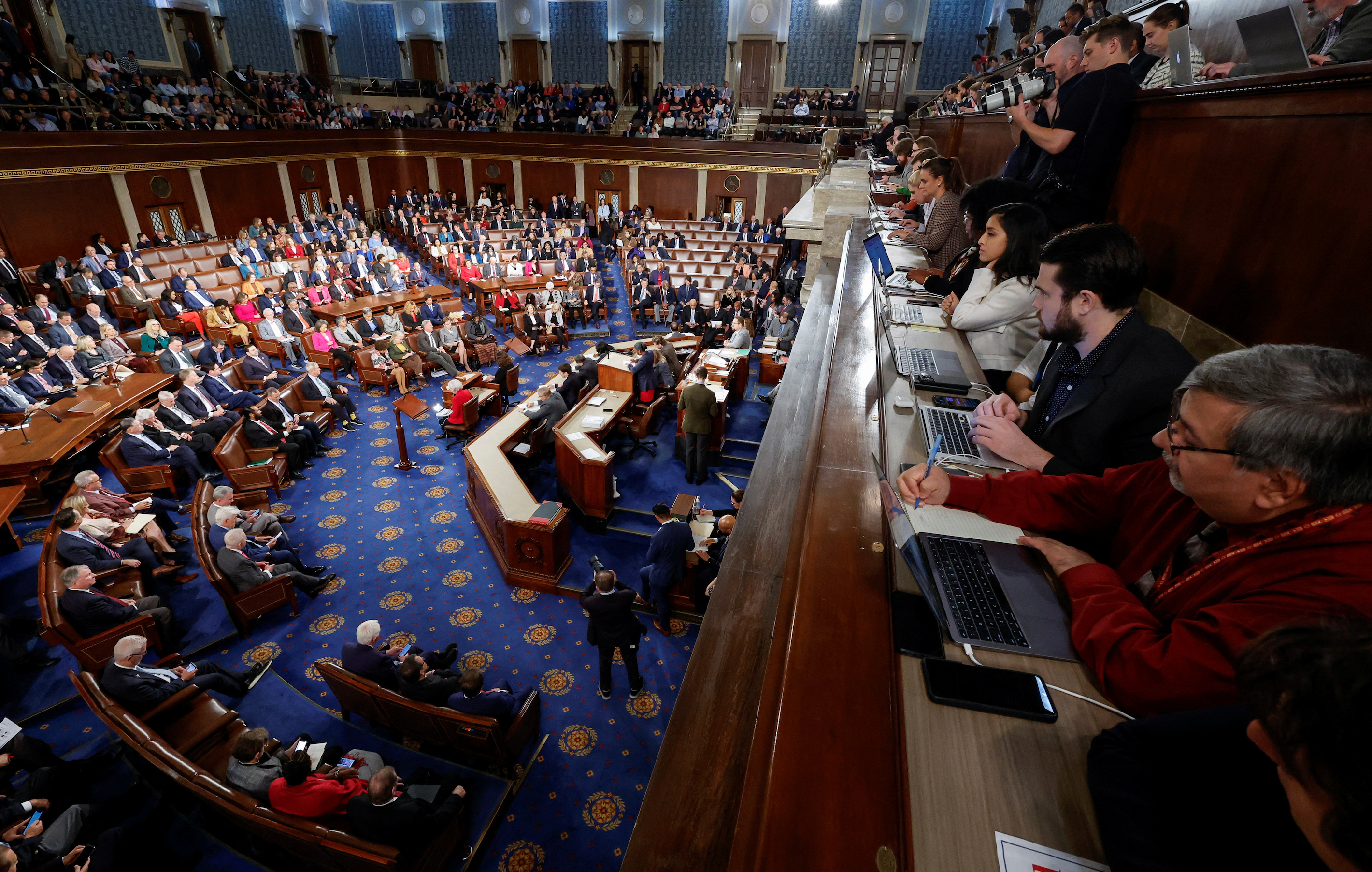
Backlog of US House bills piles up amid GOP infighting
PHOTO CAPTION: Members of the Capitol Hill press corps keep watch as the U.S. House of Representatives gathers for a third round of voting to elect a new Speaker of the House at the U.S. Capitol in Washington, U.S., October 20, 2023. REUTERS/Jonathan Ernst
WASHINGTON (Reuters) - Infighting among Republicans who control the U.S. House of Representatives has left that chamber leaderless for three weeks, preventing Congress from taking up urgent legislation.
Here are some of the items on lawmakers' growing to-do list:
ISRAEL AND UKRAINE AID, U.S. BORDER SECURITY
Democratic President Joe Biden has asked Congress to provide $61.4 billion to Ukraine and $14.3 billion to Israel to help in their military conflicts.
Those are the biggest items in a $106 billion package that also includes $13.6 billion for U.S. border security and $9.2 billion for humanitarian aid.
Biden has rolled all those items together, but Republicans may try to break them up, as they are divided over further support for Ukraine.
LOOMING GOVERNMENT SHUTDOWN
U.S. government funding is due to expire on Nov. 17 and a partial shutdown of many federal services, from scientific research to nutrition benefits, could begin the next day if lawmakers do not act.
Congress has yet to pass any of the 12 detailed spending bills that fund government operations for the fiscal year that started on Oct. 1. Republicans have passed four of those bills out of the House, but they differ significantly from bipartisan legislation being developed in the Senate.
To avert a partial government shutdown in mid-November, the House and the Democratic-controlled Senate will have to resolve their differences and send those 12 spending bills to Biden to sign into law, or else agree on a stopgap bill that would push the deadline back.
The government is currently funded by a similar stopgap bill that former House Speaker Kevin McCarthy engineered the passage of on Sept. 30, leading a small group of hardline Republicans to oust him and set off the current leadership crisis.
AIR TRAVEL
Congress also faces a Dec. 31 deadline to update legislation that covers the Federal Aviation Administration and other air travel issues.
The House passed bipartisan legislation in July, but the Senate has yet to pass its own version. The two chambers would need to resolve any differences before sending it on to Biden to sign into law.
Failure to renew these programs could prevent the government from collecting more than $50 million in taxes each day that fund the U.S. aviation system.
AGRICULTURE AND FOOD
Congress must renew legislation that covers farm subsidies, nutrition aid and other agricultural programs. Lawmakers are supposed to pass a new farm bill ever five years, but negotiations often push that deadline back. This version is expected to cost more than $1.5 trillion.
FLOOD INSURANCE
Congress also must periodically update the National Flood Insurance Program, which provides subsidized insurance to property owners in flood-prone areas.
The program is due to lapse on Nov. 17. If Congress does not renew it, the Federal Emergency Management Agency says it would be able to process insurance claims but would not be able to provide new policies, which could affect more than a thousand property sales each day.
(Reporting by Andy Sullivan; Editing by Scott Malone and Alistair Bell)









